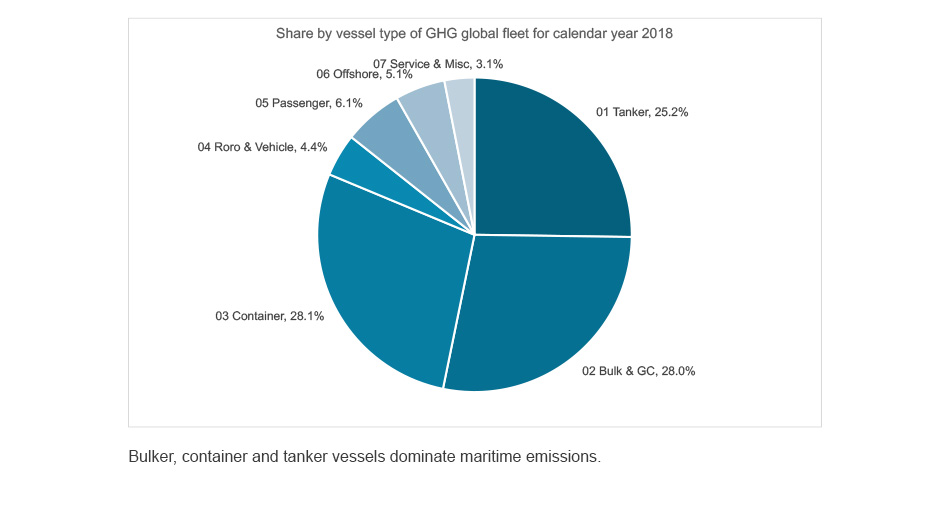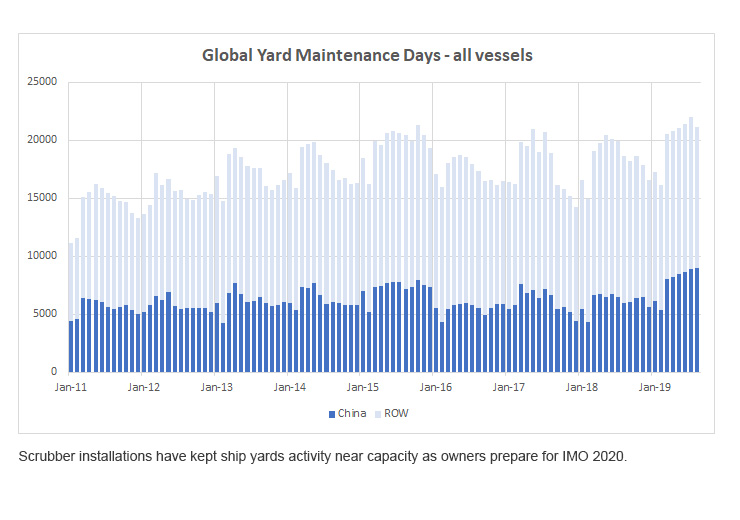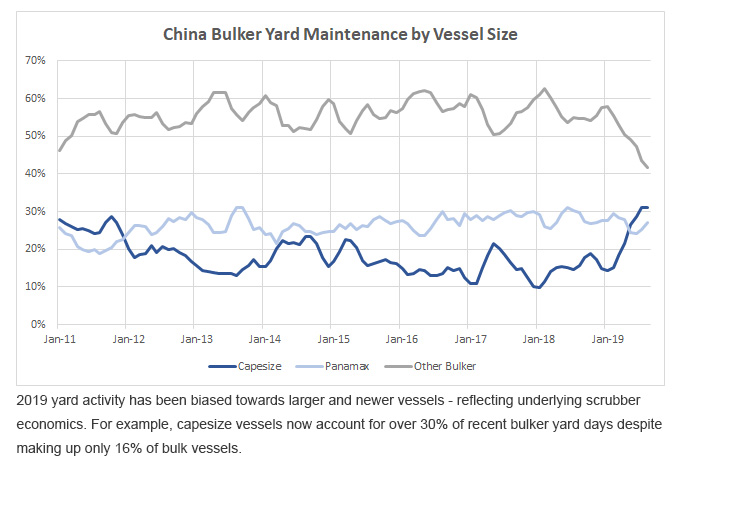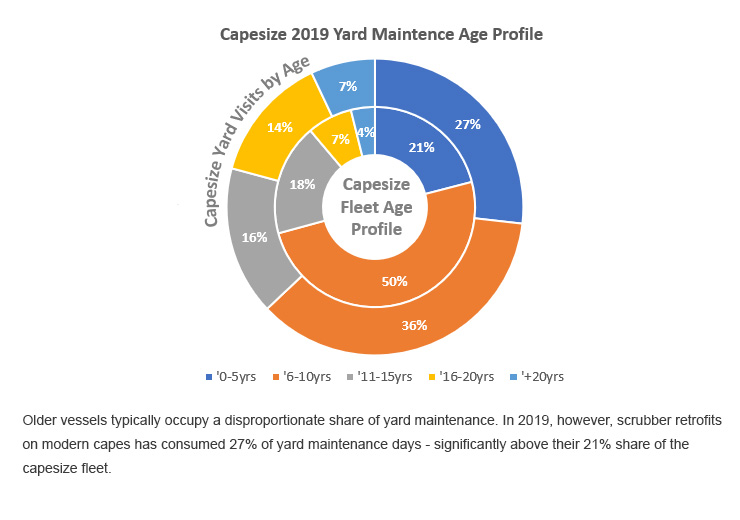What we’re talking about now
International Shipping Emissions
June 2022
Marine Benchmark’s estimates of monthly international shipping CO2 emissions is based on AIS data received from IMO registered vessels.
For more information on shipping emissions and Marine Benchmark products, please contact info@marinebenchmark.com
Shipyard Utilisation Report
February 2022
Read the latest Marine Benchmark report on shipyard utilisation which includes Global Ship yard utilisation across the world.
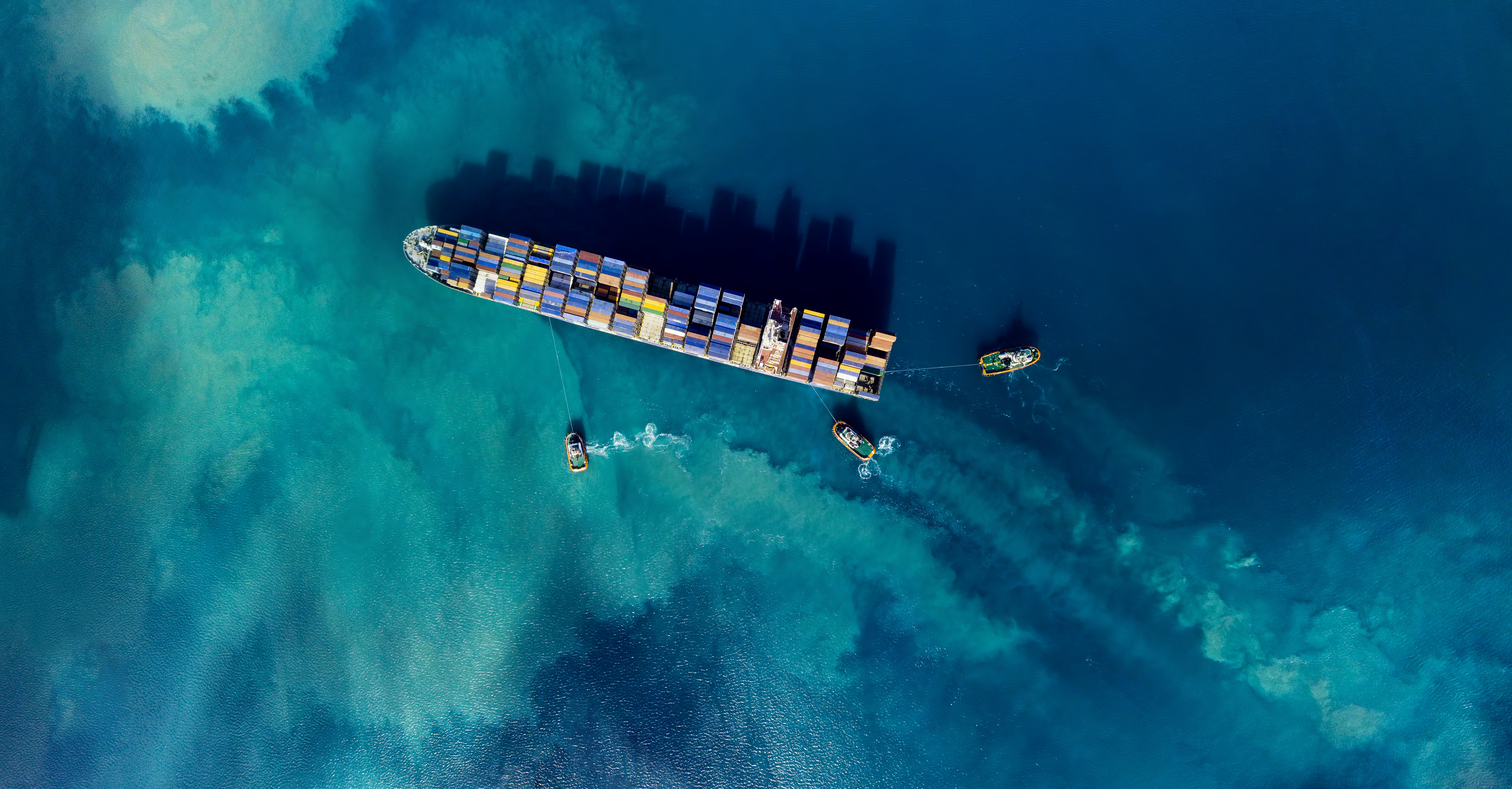
Contributing to COP26
November 2021
As COP26 continues, it’s important to understand the shipping industry’s contribution to the global CO2 problem over time. Whilst we saw a significant reduction in CO2 emissions in 2020, this was mainly due to COVID19 restrictions and not technological advancements or use of alternative fuels. The general trend shows little improvement in CO2 emissions with an average annual increase of approximately 2.5% since 2012. It will be interesting to see how much of an effect the IMO’s 2023 regulation will have to halt this upward trend.
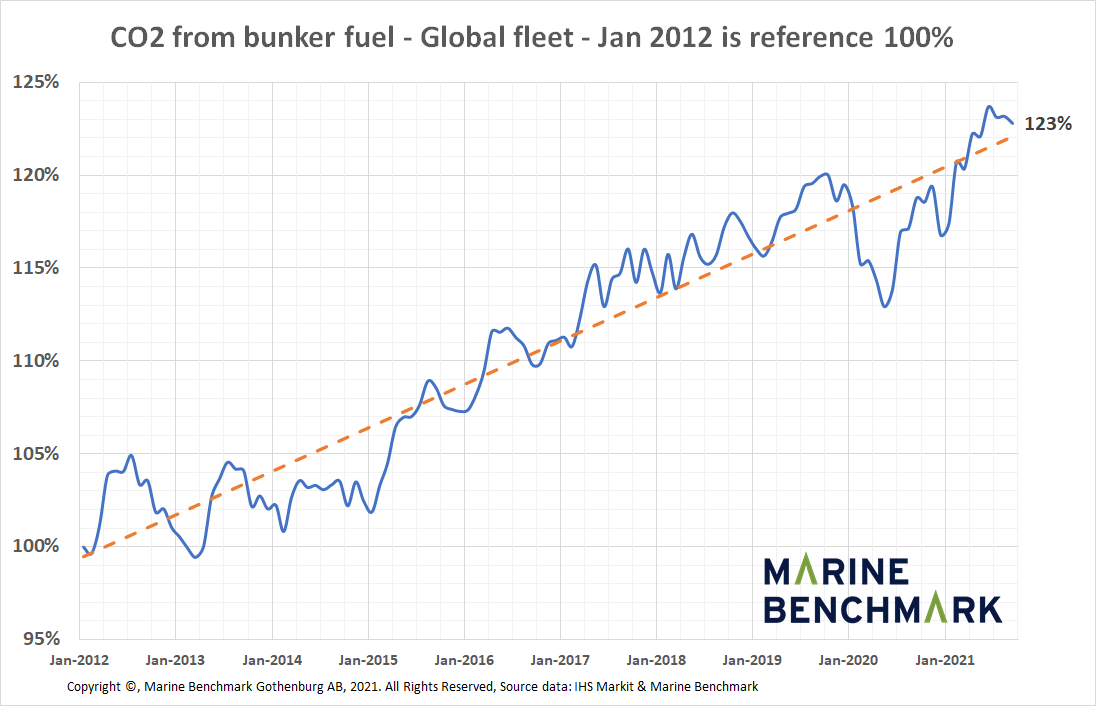
Report : The Suez Canal blockage as a catalyst for innovation.
April 2021
With data and insights provided by Marine Benchmark, this latest report from Mikael Lind and other expert contributors, looks at how the the blockage in the Suez canal caused by the container ship, the Ever Given, could be just the catalyst needed to change how we deal with port congestion, and have a positive impact on fuel consumption and emissions.
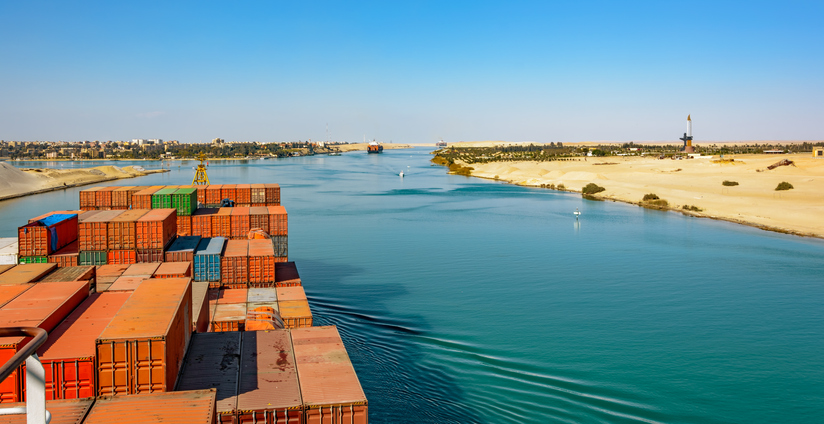
Maritime CO2 Emissions
November 2020
Our latest analysis of CO2 emissions shows that CO2 emissions will continue to rise and track fleet growth. An ageing fleet of ships and historically low levels of new build activity present significant challenges to the International Maritime Organization’s goal of reducing overall CO2 emissions from the shipping industry. Read our latest research on the growth of emissions over the last few years and the impact of the pandemic and how this might play out in future.

UNCTAD 2020 Maritime Transportation Report
November 2020
Marine Benchmark are proud to have contributed to UNCTAD’s 2020 Maritime Transportation Report by providing maritime CO2 emissions data and supporting analysis.
This year’s UNCTAD report includes a chapter on performance indicators, including trends in maritime greenhouse gas emissions. It is particularly timely this year with the IMO’s Marine Environment Protection Committee (MEPC) also taking place later this month.
“We are delighted to have served UNCTAD with our maritime emissions data and to have played a small role in this report. There is no question that maritime CO2 emissions have risen over the past decade, making IMO emission targets more difficult to achieve. The use of AIS data in estimating fleet-wide CO2 emissions provides for continuous monitoring and a benchmark for comparison against actual vessel emissions when they are reported.” – Torbjörn Rydbergh, CEO and joint founder of Marine Benchmark.

Welcome to our new team member
October 2020
Marine Benchmark welcomes seasoned developer Sergey Krakov to team. Sergey has spent the past 13 years developing innovative systems for Viskan System AB in Sweden, which are now used by several large retail chains in Sweden. As a specialist in SQL and JAVA coding, Sergey will be responsible for the further development of Marine Benchmark’s shipping information systems and optimising data processing.
“Working with SQL is what I love to do and I’m very excited to join the Marine Benchmark team to help take on some of the big maritime intelligence challenges the industry is facing.” – Sergey Krakov.
Börje Berneblad, Marine Benchmark’s Head of Development, commented – “we are very pleased to welcome Sergey to Marine Benchmark’s Gothenburg office and we look forward to working with him on some exciting new projects.”

Decarbonizing Shipping
March 2020
We’ve been working alongside the United Nations Conference on Trade and Development (UNCTAD) to produce the maritime data underlying a brief paper on the role of flag nations in implementing the IMO’s greenhouse gas strategy.

Greenhouse Gas Analysis
October 2019
The Marine Benchmark Greenhouse Gas (GHG) analysis for the global fleet is a data model with calculated fuel consumption and GHG from vessel fuel consumption for the global fleet of vessels with IMO numbers.
Yard Maintenance
September 2019
The IMO 2020 low sulfur fuel rule has pushed 2019 yard and maintenance schedules to capacity as owners rush to complete scrubber installations. Marine Benchmark’s web-based tools allow clients to access, analyse and interpret changes in shipping behaviour.











